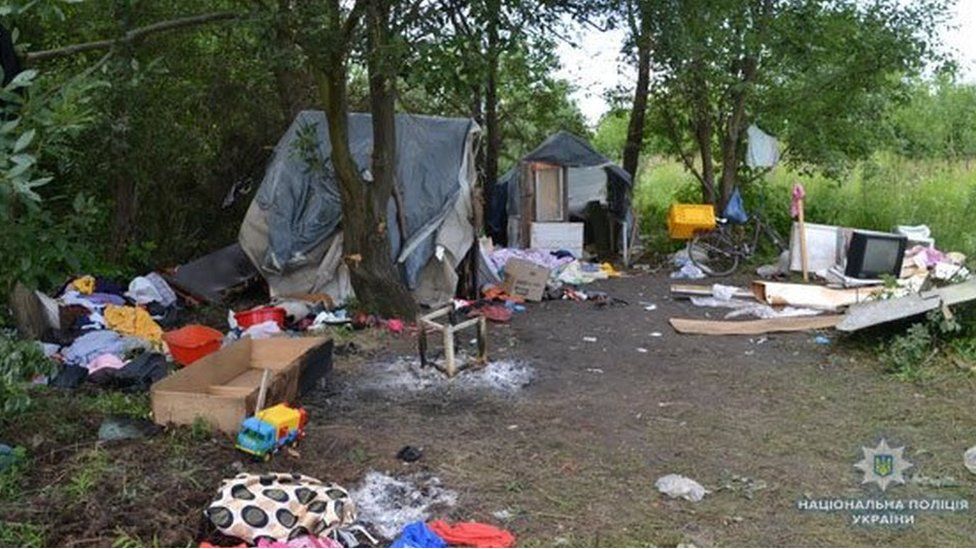Ukraine Roma camp attack leaves one dead
- Published

One person has been killed in an attack on a Roma camp in western Ukraine late on Saturday night.
A masked group armed with batons and other weapons targeted the camp on the outskirts of the city of Lviv shortly before midnight, according to police.
A 24-year-old man died of stab wounds, while four others - including a 10-year-old boy - were injured.
It is the latest in a series of attacks on Ukraine's Roma community (also known as gypsies).
Seven suspects aged 16 and 17 have been arrested, as well as a 20-year-old accused of planning the attack.
Ukraine's national police force and Ministry of Internal Affairs have launched a criminal investigation into the "deliberate murder", which carries a penalty of up to 15 years in prison.
Ukraine's Human Rights Commissioner Lyudmyla Denisova has asked the interior minister to personally oversee the investigation and to arrange temporary accommodation for the victims.
In April, the far-right group C14 burnt down tents in a Roma camp in the capital Kiev and chased women and children.
In a joint letter earlier this month, four human rights groups including Amnesty International and Human Rights Watch warned against the increase in attacks by far-right groups on minorities in Ukraine.
They said that authorities had "failed" to respond to most incidents, leading to "an atmosphere of near total impunity that cannot but embolden these groups to commit more attacks".
The last Ukrainian census in 2001 estimated the Roma population to be around 40,000, although rights groups say the figure could be as high as 260,000.
The Roma face discrimination in many countries, with the UN describing them as being "among Europe's most excluded groups".
On Tuesday, Italy's right-wing populist Interior Minister Matteo Salvini caused an outcry after calling for a census of the Roma community.
He said that Roma with no right to remain in Italy would be deported, but "unfortunately" those with Italian citizenship would have to stay.
His coalition ally and leader of the anti-establishment Five Star movement, Luigi di Maio, later rejected his comments, making it clear that a census was unconstitutional.
- Published19 June 2018
- Published29 August 2016